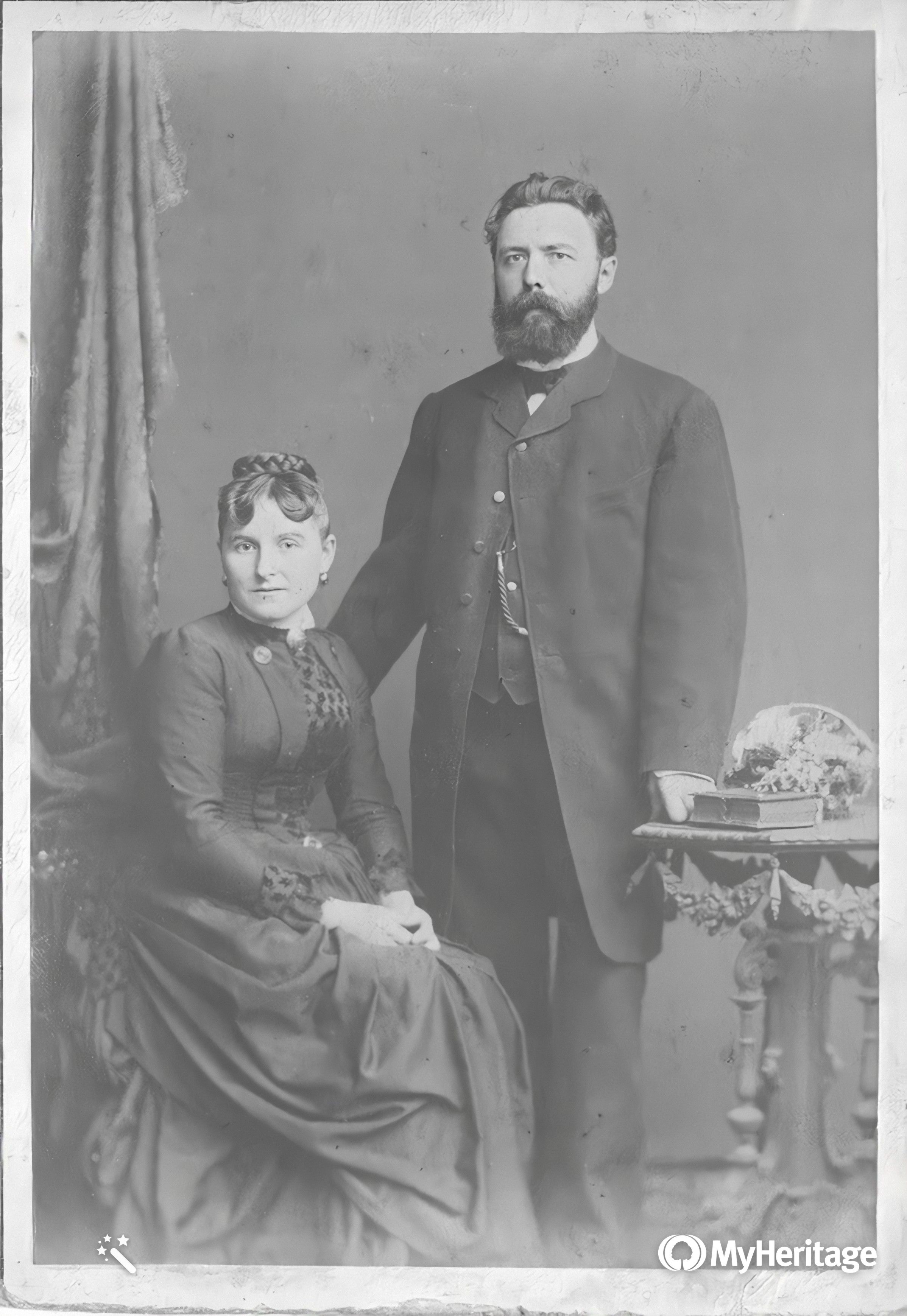Her mother Johanne had a militant mind and liked to stand at her living room window telling to the passers by the latest Nazi crimes. She knew about that because her husband, an electrician and radio technician, had assembled a radio set which enabled her to listen to the forbidden enemy broadcasts in French and English. She had had quite a good education and had learned several languages but that is another story…
It was mortifying! The chaffing was started by some dear cousins when I was about three, and went on in school right up to my A-levels. It got slightly better during my college years. Well, I survived as you can see, and finally that name turned out to be an advantage. Why? Because I married a Frenchman , of course! But that, you know, is another story or rather a serial, to follow up…
... I never knew her, because she died two years before I was born. So today I want to write down what I have learned about her since my childhood.
My maternal grandmother Johanne Meyer was born on 2 December 1887 in Rathsdamnitz near Stolp in Pomerania, the third child of Maria Heinrich August Meyer from Cologne and Katharina Margarethe Sulzer from Gauangelloch in the Odenwald.

How Sulzer's Gret, a butcher's and innkeeper's daughter from Baden, and the son of a middle-class merchant's family from the Rhineland-Westphalia region met, I do not know, the story of this marriage can be read in "Sulzer's Gret".
In any case, Johanne didn't say much about her father, no wonder, because there was more whispering than talking about "August Maria" in the family. This marriage was divorced, and the Sulzers Gret would have killed anyone who mentioned this husband before her.
The War is over ! Joy and relief throughout the Allied Nations but also in Germany.
50 years later this day was celebrated by many solemn commemorations and impressive speeches broadcast on the radio and on TV.
When I told my father,atched some of these celebrations, he said: « Oh, well, I’ve got some different memories there. We swam across the Elbe that night, Fritz and I. Didn’t want to be caught by the Russians, you see…We had rigged up a kind of raft with the sides of our truck (Dad had been a radio operator on the Eastern Front) and the inner tubes of the tyres. We put our kit and the boots on it – the guns, of course, had already gone into the river – and then swam alongside the raft. Everything was fine until Fritz got a cramp in the le on the phone, that I had wg. He tried to get onto the raft, but from the narrow side, the bloody idiot, and overturned the whole contraption. Our things went down, of course, and we arrived on the other side, in our birthday suits, where the Americans were already waiting.
In the story about the 8th May the Americans came off quite badly. That’s why I thought I would write something much nicer about the American Occupation Forces.
My mother’s brother Heinrich, dubbed Heini, had got engaged at Christmas 1939 to Lotte. She was a very good roller and ice skater, skating judge and charter member of the MERC (Mannheimer Eis- und Rollsportclub), which is now mostly known for its ice-hockey team. Elfriede, my mother, skated there and her father, “Papa Lenz” was also a charter member and stop watch man. Heini dropped in now and then (he was a rower), and so the engagement came about.



